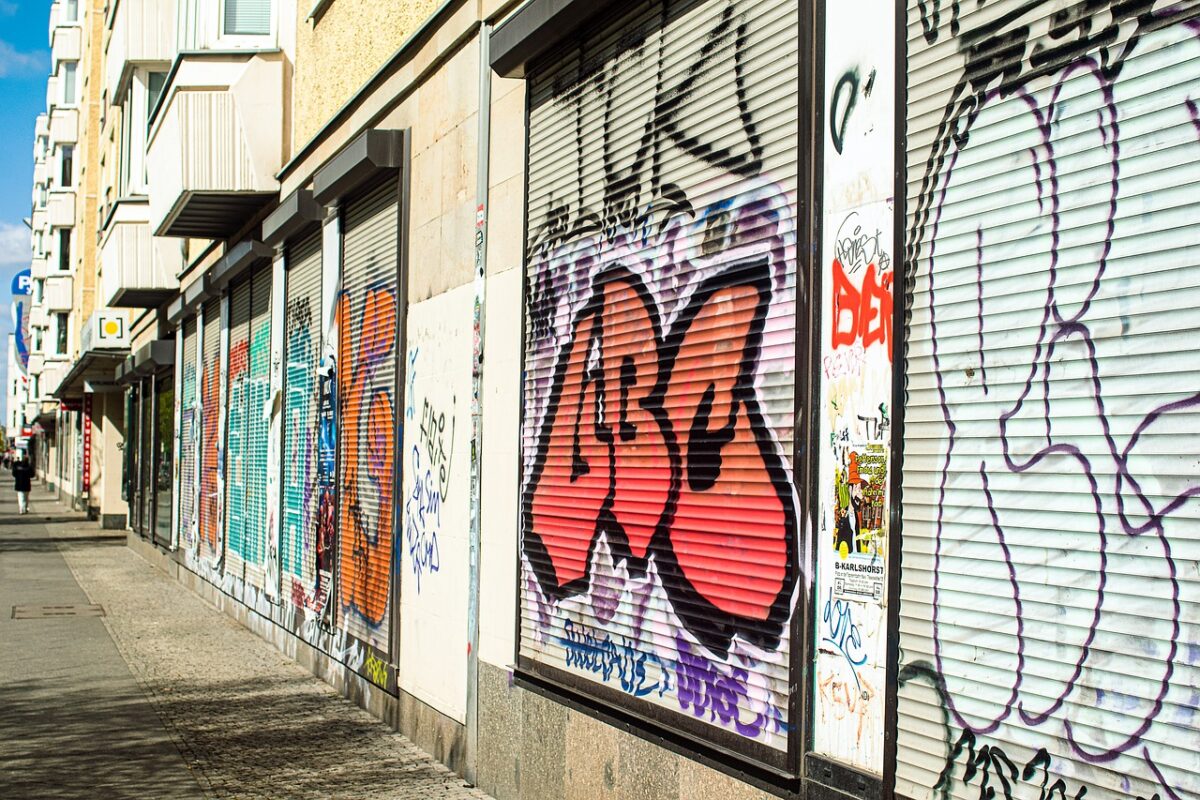By Kate Wellham, immersive events producer
and researcher based in the UK

As the global response to the pandemic shows no signs of slowing, a huge number of people who are usually accustomed to working in busy office environments are now growing used to working from home.
And as they do so, businesses whose prestigious city centre headquarters have been near empty for months may be questioning whether this form of working could be more of a long-term arrangement, even when a return to the office is once again possible.
Combine this with the number of city-based businesses which are, sadly, unable to bounce back from the pandemic, and we have an unchartered future on our hands. This is a future in which businesses simply do not return to pricey urban office space – or who return only in part – preferring instead to save money on rents and continue with home-working where possible.
So where does this lead? With workers no longer needing to live in cities to work for the companies they desire, the city centre private rental market also looks precarious. Should people opt to work from home in greener areas with cheaper housing, a whole ecosystem could begin to break down.
Restaurants, bars, theatres, venues, cafes and retail have sprung up in cities where young professionals live and work.
These businesses rely on a constant stream of people going about a daily routine that involves commuting to work, going out for lunch, meeting friends after work, and grabbing some shopping on the way home.
At weekends these businesses serve tourists who come for events or shopping trips, and who visit such cities precisely because of the aspirational cosmopolitan lifestyle and mythology they exude.
Removing office workers from cities would, undoubtedly, have a ripple effect that could completely transform our cities in the coming years. But what might that look like? One option, of course, is cities’ total failure to adapt, with these once thriving urban centres falling into decline.
But that’s not the only option. As much as online services have allowed people to work from home, and to find entertainment and communication at their fingertips, there is still an alternative that simply cannot be delivered digitally.
The so-called ‘experience economy’ is (covid aside) a thriving one, which the sheer ubiquity of life online is only serving to highlight. In a world where we live and socialise so much online, getting out to do something in the physical world has a special place of its own, and it’s a thrill for which people are increasingly happy to pay.
One only need look at the rise of ‘escape room’ team games to realise there remains a market for real life, real time entertainment.
And while online shopping is the norm now more than ever, the global prevalence of German-style Christmas markets, for example, shows that the ritual of wandering, browsing, entertainment and dining during a day of shopping makes it often far more than a mere purchasing exercise.
The rise of the UK-based company, Secret Cinema, defies all logic without the context of the experience economy. Films that have been available to view online for decades have been screened in purpose-built theatrical environments over the course of several hours, with audiences paying around 60GBP (around six times the cost of a cinema ticket) for entry, with food, drink and merchandise at an additional cost.

Miniature golf courses, a kitsch relic of the pre-digital age, are now back and bigger than ever before, taking group bookings for neon-lit indoor courses.
A shopping centre in Groningen has overhauled its offer completely, no longer selling products and instead offering dwell time and space.
Clearly the prevalence of digital services has had no detrimental effect on our desire to gather, play and exist in environments outside our own homes.
Could cities take their inspiration from this booming sector?
With the inevitable lowering of commercial rents, new businesses who wish to enter this market have an easier route to trialling new forms of entertainment and in-person services, and landlords would be wise to let them.
Without filling spaces with activity, urban centres will only continue to lose their appeal, and see more and more residents falling out of love with these once booming neighbourhoods.
A lowering of residential rents, too, could allow young creatives and families to live and work in cities affordably, ensuring they maintain a sense of vibrancy and community.
With empty spaces filled by experimental, independent businesses, cities can lose their homogenous feel, and forge identities that will carry them into a more exciting future.
What we are entering is an experiment in real estate, at its core. But it is an experiment which has knock-on effects for the survival of our historic centres, and the provision of achievable lifestyles that offer more than a digital focus.
